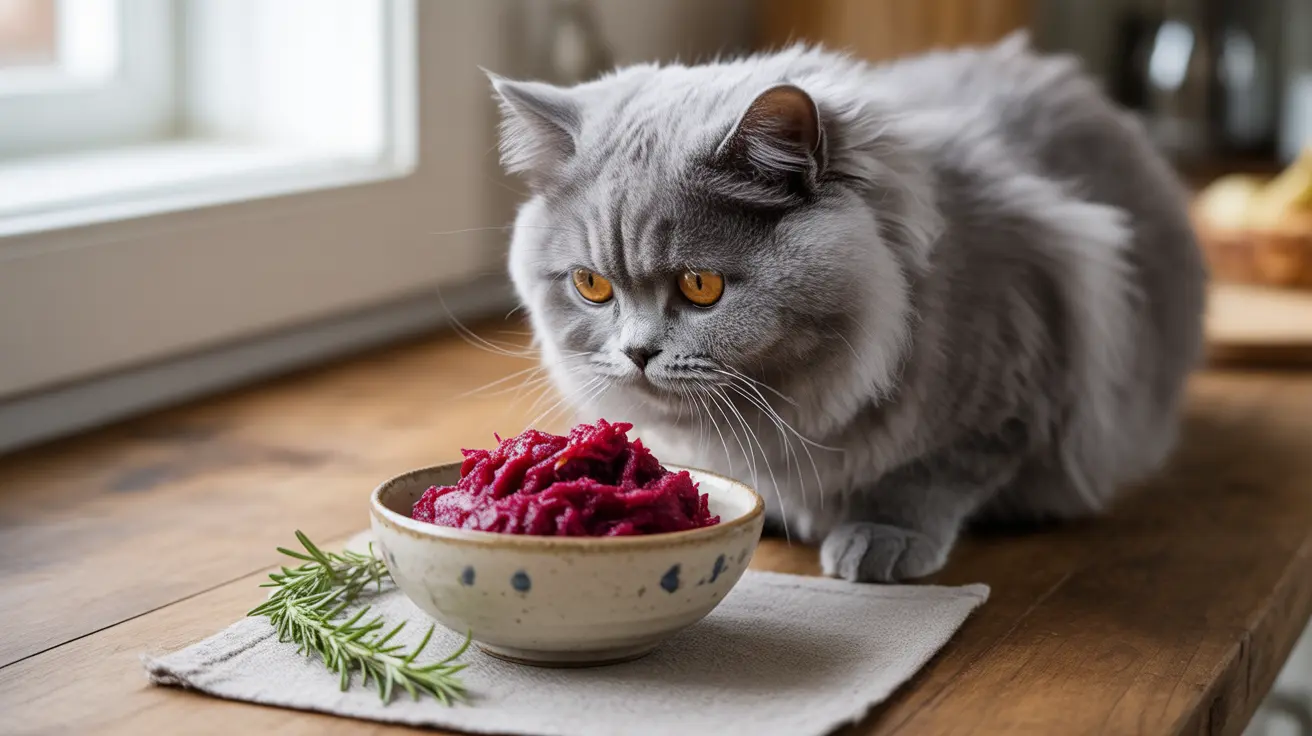Understanding Cats' Nutritional Needs
Before discussing beets specifically, it's crucial to understand that cats are obligate carnivores. This means they require a meat-based diet to thrive and obtain essential nutrients. Their digestive systems are specifically designed to process animal proteins and fats, not plant matter.
While cats can consume small amounts of vegetables like beets, they don't derive significant nutritional benefits from them as humans do. Their bodies lack certain enzymes necessary to properly digest and utilize plant-based nutrients effectively.
Safety and Suitability of Beets for Cats
Beets are non-toxic to cats and can be offered as an occasional treat. However, they should never become a regular part of your cat's diet. When properly prepared, beets pose minimal risk to healthy cats, but they must be served in appropriate portions and frequencies.
Proper Preparation Methods
If you decide to offer beets to your cat, follow these preparation guidelines:
- Cook the beets thoroughly (steaming or boiling preferred)
- Remove all skin and tough parts
- Cut into very small pieces or mash completely
- Serve plain without any seasonings, oils, or additives
- Never offer pickled or canned beets
Potential Benefits and Risks
Benefits
While beets aren't nutritionally necessary for cats, they do contain some beneficial compounds:
- Natural fiber that may aid digestion
- High water content for added hydration
- Antioxidants that could support overall health
- Various vitamins and minerals
Risks and Concerns
Several potential risks exist when feeding beets to cats:
- High sugar content that's unnecessary for cats
- Oxalates that could contribute to kidney stone formation
- Possible digestive upset if overfed
- Risk of choking if not properly prepared
- Potential allergic reactions in sensitive cats
Serving Guidelines and Portions
When introducing beets to your cat's diet, follow these guidelines:
- Start with a tiny amount (1/4 teaspoon or less)
- Monitor for any adverse reactions
- Limit treats, including beets, to less than 10% of daily caloric intake
- Maintain at least 48 hours between offerings
- Always have fresh water available
When to Avoid Feeding Beets
Some cats should not be given beets at all, including:
- Cats with kidney or urinary tract issues
- Diabetic cats
- Cats with known food sensitivities
- Overweight cats
- Cats on specialized diets
Frequently Asked Questions
Can cats safely eat beets, and how often can they have them?
Yes, cats can safely eat properly prepared beets in very small amounts. They should only be offered as an occasional treat, no more than once or twice per week, and in portions no larger than a teaspoon.
What is the best way to prepare and serve beets to my cat?
Cook beets thoroughly by steaming or boiling, remove all skin, cut into tiny pieces or mash them, and serve plain without any seasonings or additives. Never serve raw, pickled, or canned beets.
Are there any health benefits or nutritional value for cats eating beets?
While beets contain some beneficial compounds like fiber and antioxidants, cats derive minimal nutritional value from them due to their carnivorous digestive system. Any benefits are minor and shouldn't be considered significant to their diet.
What risks or side effects should I watch for if my cat eats beets?
Monitor for signs of digestive upset, including vomiting or diarrhea, allergic reactions, and changes in urinary habits. Also, be aware that beet pigments can temporarily color stools red, which shouldn't be confused with blood.
Why should pickled, canned, or raw beets be avoided for cats?
These forms of beets often contain harmful additives like salt, preservatives, or seasonings. Raw beets are difficult to digest and may pose a choking hazard, while pickled and canned varieties typically contain ingredients that could be harmful to cats.






